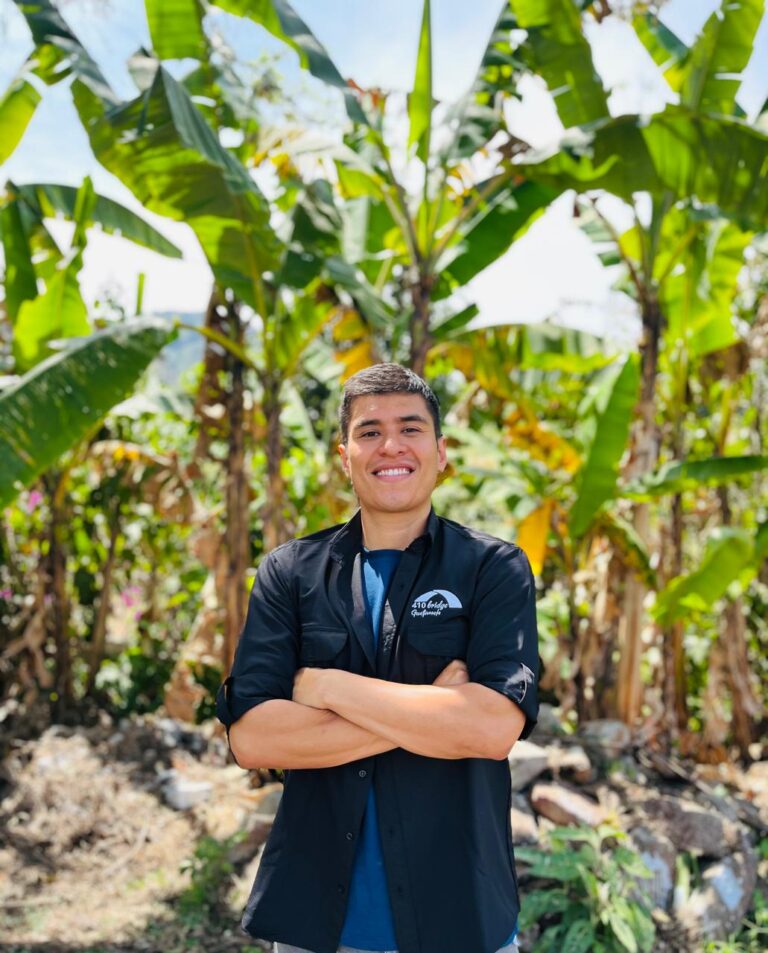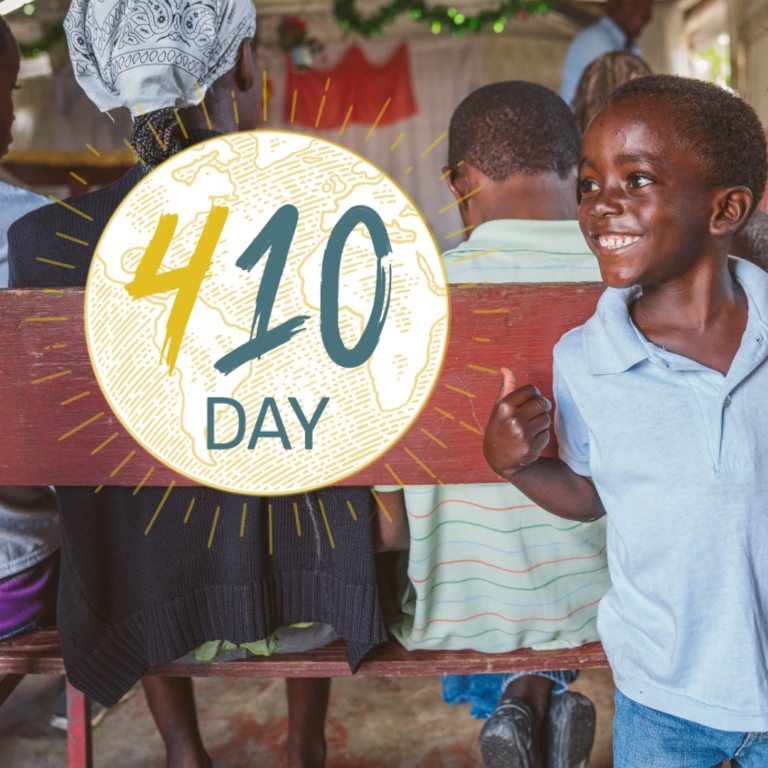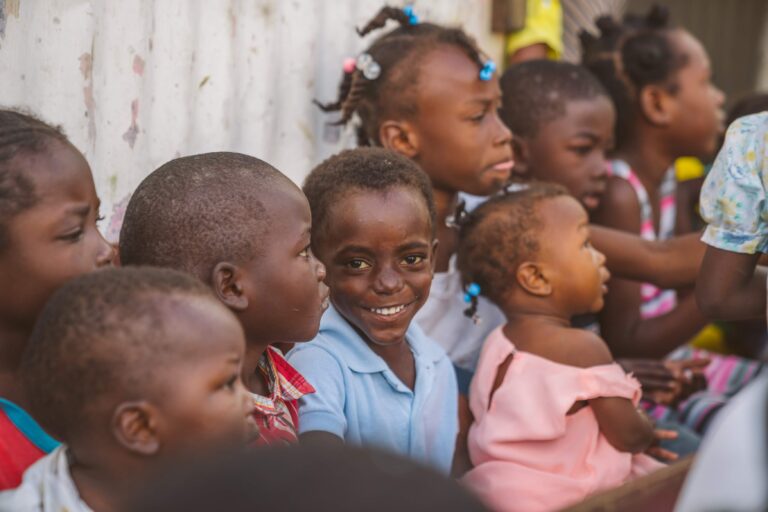by Lucy Andrew – Sponsorship Coordinator
I work with the 410 Bridge under the Education Program as the Sponsorship Coordinator. In the Education Program we work with public schools in all our communities to give access to quality education to all school-age-going children.
We worked hard to make sure all the children in the community could regularly attend school, however, we noticed that girls were regularly absent each month.
Why Aren’t Girls Attending School?
We found the main reason is the lack of sanitary pads for girls during their menstruation periods. Missing 3 days a month in 9 months of a school calendar is a total of 27 days. This affected girls’ performance and even self-esteem.
Through consultation with schools’ management and community leaders, we began the Dignity for Girls program to help girls go through the adolescence stage comfortably.
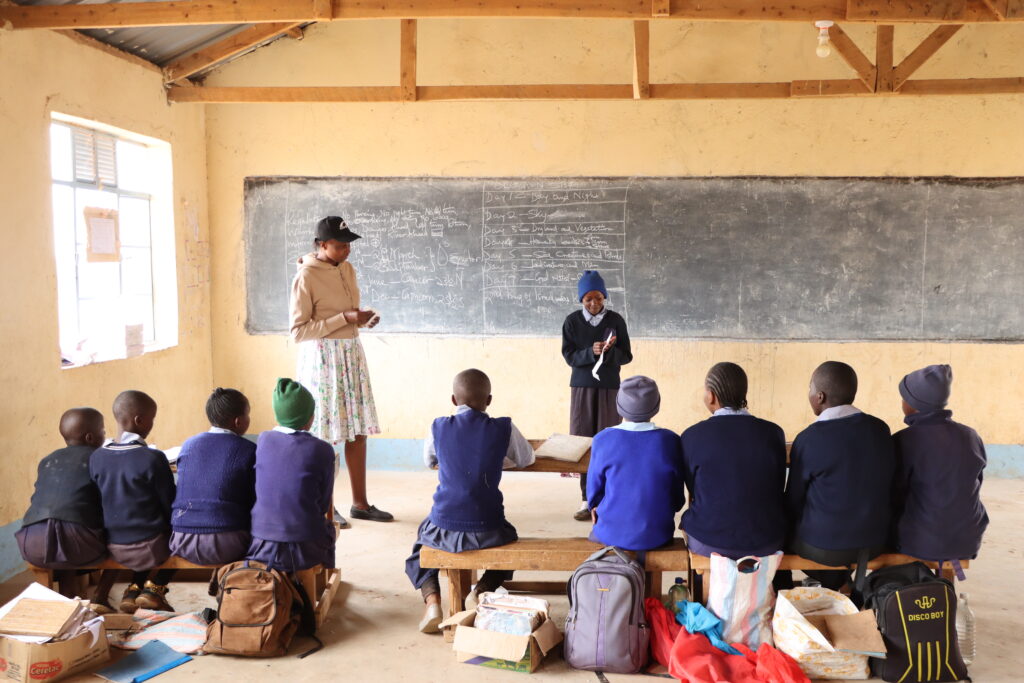
An Impactful Program
Through this program, we are able to provide sanitary pads to girls in our community schools, those who’ve already began their periods, as well as take girls from age of 10 years through a hygiene talk to help them move from a cultural point of viewing menstruation as evil and dirty to appreciating this stage in development.
These hygiene talks have helped our girls acquire knowledge on how to keep clean even with scarcity of water, what meals to take during the menstruation period, how to manage body functional side effects like pain and so on. The sanitary pads also help to boost the confidence of these girls.
Our African culture has not allowed free expression around menstruation talks. Every time I address the girls, I see boys giggle in low tones then distance themselves from such talk while girls shy away from talking about it. Whenever I visit them, we openly talk about this and help the boys and girls appreciate adolescence and menses.
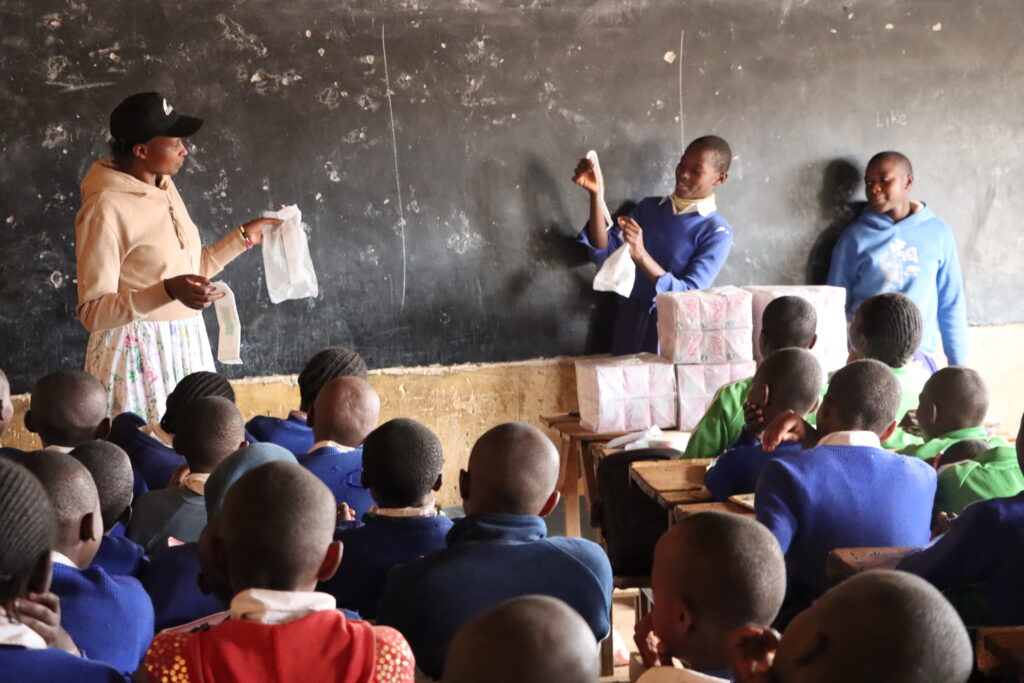
Boys Making Fun Of The Girls
We also discovered in our community schools, that boys make fun of the girls during these changes. This puts the girl’s esteem really low. It eventually affects how they view themselves vs the boys. Most girls view boys as superior contributed by a stereotype which forms a wrong mindset.
In these talks with the girls, I have strongly challenged such mindsets as backward and not true. I challenge the girls to work hard and beat their male counterparts to prove this stereotype wrong.
Challenging Mother’s Mindsets
Whenever we give them the sanitary pads, their mothers take the pads away from them to use them or give to older sisters going to boarding schools. During the health talks, I encourage girls to own their share of pads as I challenge the parents to prioritize their girls’ menstruation needs.
Some women in our communities don’t appreciate their girls’ stage of development.
Vulnerable To Sexual Assault
Our communities have vulnerable families and girls are easily taken advantage of. Some ask for help from men who end up taking advantage of them sexually.
Sadly, I have witnessed too many young girls drop out of school because their parents couldn’t afford to support them with pads and so they end up asking for help from men. When these men realize how vulnerable this girls are they demand payback for these favors in terms of sex.
These precious and innocent girls fall into that trap and get pregnant, some even get married in the process. Out of shame many drop school, also because their parents can’t support them and their new babies in school.
Additional Challenges in Mutirithia
We distributed sanitary pads to girls in all our schools late last year. We do this termly to ensure girls are well catered for, especially to vulnerable girls whose parents can’t afford to buy them pads for the whole year. The girls were so happy to see us knowing it’s pads time.
Some communities we serve especially the Maasai, we found that most of the girls don’t wear panties due to lack of them, and some only have only a pair that is in a deplorable state. Mutirithia community lies in this ethnicity group whose culture demean the girl child.
They barely give the woman a visible role and girls are not audible enough to have their needs met. We have challenged the community especially men to view both genders as equal offering equal opportunities to education and needs of girls.
Only a girl will understand what it means seeing all her friends joyfully skipping rope ate school, playing with a hula-hoop, but she cannot join them because her dress is stained. She can’t risk exposing her mess to boys who would ridicule her for weeks and months.
Meet *Mary
Having come from a similar background I understood when I met Mary*(named changed for privacy reasons) from one of our communities. We had visited her school on a chilly morning doing our dignity for girls activity, and she had her sweater tied around her waist.
She looked worried but managed a half smile which formed at the end of her lips then frowned immediately.
Her teacher told us she had suffered hormonal imbalance for the past few months causing her to get her menses twice a month. This particular morning Mary had used the only pad from a pack that her guidance and counselling teacher had bought her. We encouraged her, had her cleaned and changed her dress, as she always packs an extra dress.
After she got 8 packets of sanitary pads, she could not hide her joy and the beautiful smile. She took home the packets to help her for the next few months. I did follow-up with her mother to have her visit a medical practitioner for management of the situation.
Her story touched me and I always carry with me few packs of sanitary pads whenever I visit our community schools for other activities.
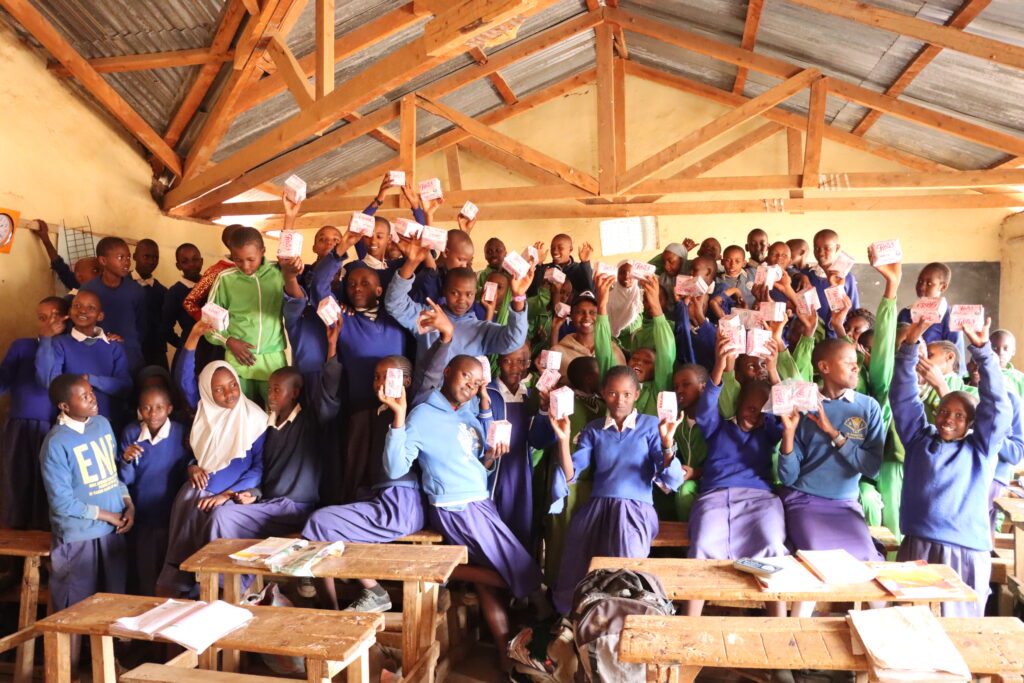
Dignity for Girls Program
I am so proud of the Dignity for Girls program.
It has helped me get to personally know the girls and they can share what they go through freely with me and their female teachers without fear of judgement. I am a champion of girl child education, having experienced backlash given to girls in my culture and having fought through it.
I love helping girls go through this stage victoriously and seeing them gain confidence to openly talk about it. I love seeing parents take up responsibility of talking about sex education in their homes and especially their fathers who have distanced themselves from their daughters’ affairs.
Please keep these girls in your prayers. If you’re interested in giving towards this program, please click the button below.

